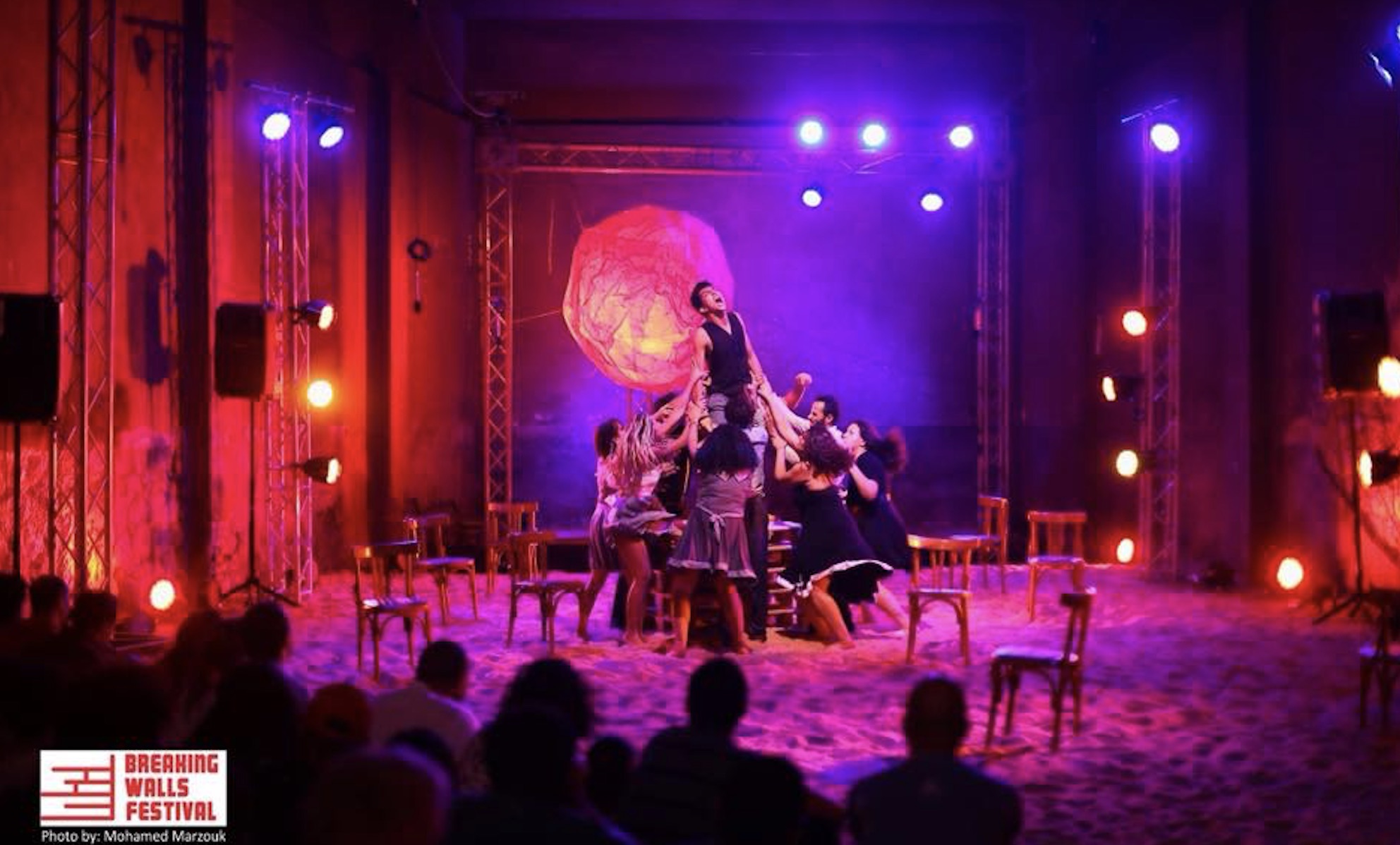“We’re a dancing culture. Even if it’s hidden,” says Hazem Header, founder and artistic director of ÑUT Dance Company (NDC). ÑUT is a Cairo-based contemporary dance company that creates and performs worldwide original work by Header, as well as other young Egyptian choreographers and theater directors. Emotion is the essence of movement. An intertwined relationship of three parties: the dance, the dancer, and the audience, is formed when emotions meet physical movement. Founded in 2011, NDC is well-rooted within Egyptian society, as it is named after the Egyptian sky goddess, Nut. The company’s first dance trilogy was about Egyptian female society, which inspired the name. ÑUT welcomes all those who wish to express the madness and joy of their imagination. Experience is relative to the company; everyone who is interested in dance and physical theater is given a chance. It encourages volunteers and also welcomes dance enthusiasts from all age ranges and backgrounds. From children to seniors, actors, musicians, professional dancers, and those who wish to experience the stage for the first time. “We performed nearly 80 dances in cultural events and videos. Recently, we performed in the Breaking Walls…




